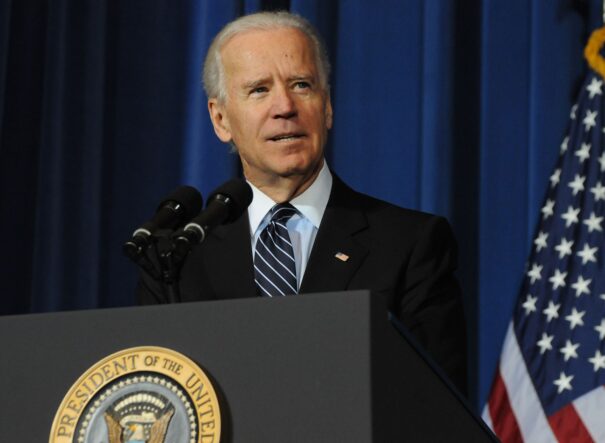
Photo by U.S. Department of the Interior
On September 13th, 1994, thirty years ago, the Violence Against Women Act (VAWA) was signed into law. The monumental act has been a lifeline for women across the country, making history as one of the most influential pieces of legislation for women’s rights ever to be passed. Enacted and upheld for the last three decades, this law covers survivors of domestic and dating violence, sexual assault, and stalking. VAWA protects survivors, regardless of their sex, gender identity, or sexual orientation and regardless of the sex, gender identity, or sexual orientation of the person who has caused harm.
The need for this legislation came from the gross failures of the legal and healthcare systems to take women’s claims of gender-based violence seriously. Before this enactment, women faced a system that routinely ignored or brutalized rape victims, prioritizing other emergencies over their trauma. Prosecutors often demanded that survivors prove they fought back, and defense attorneys used their past sexual history to discredit them. A variety of grassroots activists and many survivors of domestic assault, some who even became leaders in this movement, used their voices to fight for change to these injustices.
In 1993, former Senator and now President Joe Biden introduced the first Violence Against Women Act (VAWA), which came about after a three-year investigation into the pervasive issue of violence against women. While Biden championed the legislation, much of the heavy lifting behind the bill was done by his legal counsel, Victoria Nourse, who played a pivotal role in drafting the bill’s language and ensuring its comprehensive approach to addressing domestic violence, sexual assault, and stalking. Nourse, a highly respected legal scholar and professor, has since built a reputation as an expert in constitutional law, criminal law, and legislation.
Along with Nourse’s efforts, Ellie Smeal and the Feminist Majority Foundation also played a major part in the act’s drafting. “I attended every meeting I could go to to support the bill. Biden had a team of only women drafting it,” said Smeal. These measures were revolutionary at the time and have since provided vital protections to millions of women nationwide. With bipartisan support, the bill was eventually passed as part of the Violent Crime Control and Law Enforcement Act of 1994 and signed into law by then-President Bill Clinton.
Since then, the VAWA has emerged as a critical response to injustices and has continued to be a safeguard. The legislation has been reauthorized in 2000, 2005, 2013, and most recently in 2022. The fifth reauthorization of the VAWA, which was supported and signed into law by President Joe Biden, continues to build on this legacy by not only reauthorizing critical grant programs until 2027 but also expanding the law to address emerging and pressing issues. It reflects a deeper understanding of the intersections of violence, power, and inequality, particularly focusing on marginalized communities such as LGBTQ+ individuals and survivors in rural areas, who are often underserved.
The law’s extension of Tribal court jurisdiction over non-Native offenders on Tribal land is a particularly important measure, recognizing the sovereignty of Indigenous communities and the unique challenges they face. This reauthorization also takes bold steps in addressing the digital age’s complexities, introducing a federal civil cause of action for those whose intimate images are distributed without consent. The updates to programs like the SMART Prevention Program and the CHOOSE Youth Program further emphasize the importance of early intervention and comprehensive support for those affected by domestic and dating violence, underscoring that prevention is as critical as the response. Finally, the law’s connection to firearm safety through the NICS Denial Notification Act adds another layer of protection, recognizing the lethal intersection of guns and domestic violence.
While it has undoubtedly made strides in providing safety and justice, VAWA’s continual need for reauthorization and expansion reminds us that the fight against violence is far from over. As new threats emerge—whether through technology, changing social dynamics, or gaps in existing protections—VAWA must adapt to address these challenges. The expansion of protections for underserved communities, the inclusion of cybercrimes, and the enhancement of trauma-informed practices all point to how our understanding of violence, especially against women, is broadening. Advocating for protections for women, like the Biden-Harris administration, which has done so much to keep up with these forever-evolving injustices, is what gives hope to women across the country that they are not alone in this ongoing fight for their rights and safety.
